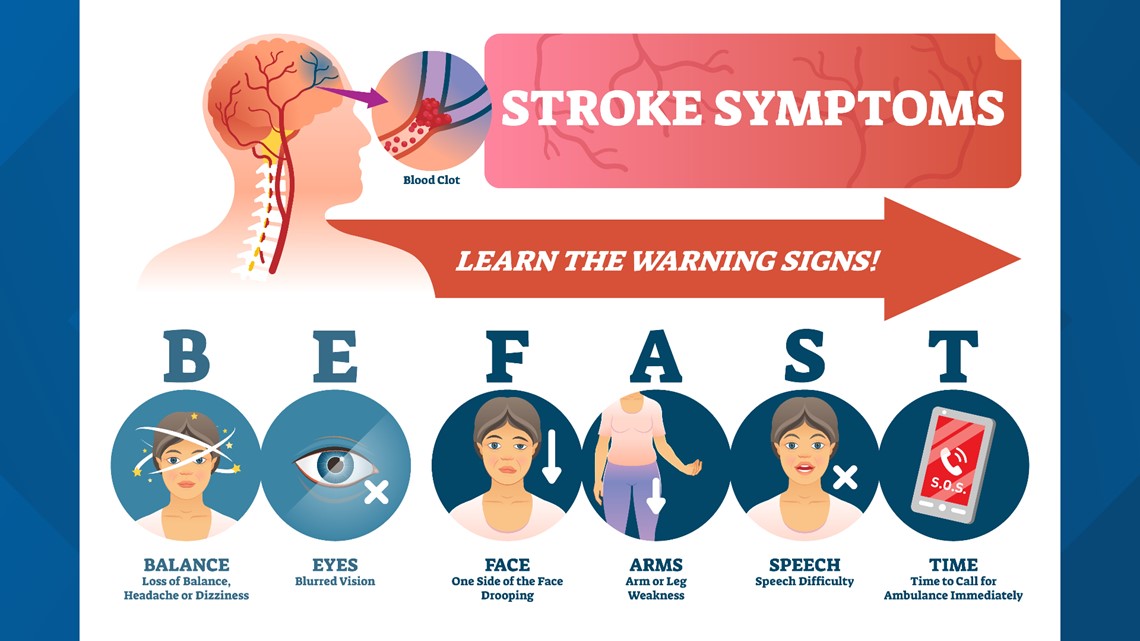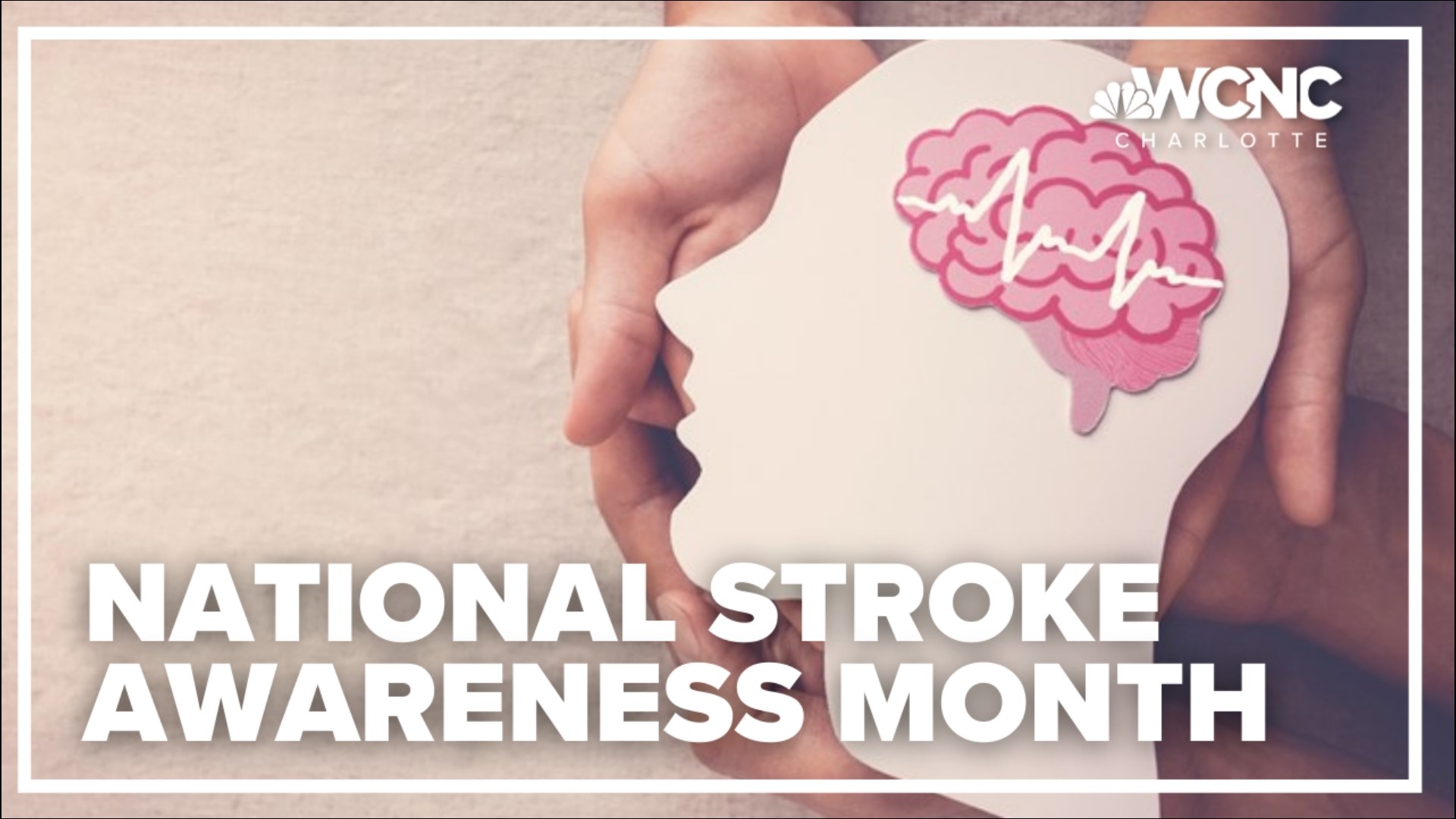ROCK HILL, S.C. — With the month of May being National Stroke Awareness Month, the Neuroscience Program at Piedmont Medical Center is working to help educate others on what a stroke is and what we can do to curve our chances of having one.
According to Dr. Ryan Gianatasio, neurologist and medical director of The Neuroscience Program, one in six people will suffer from a stroke at some point in their lifetime.
"I want people to be aware that a stroke is still a big killer in South Carolina, and Carolinas", Dr. Gianatasio said. "One in six of us, in the course of our lifetime will suffer some sort of stroke, whether that will be debilitating and make us unable to work or even has the potential potential of being fatal."
In July 2021, Will Rivera, a retired police lieutenant, suffered a stroke at the age of 45. For Rivera, the night before was just like any other evening. It was not until Rivera woke up the next morning that things seemed to be a bit different.
"I sat up in my bed, and I went to stand up. And I completely fell down. And I realized that seemingly, the right side of my body was not working, which that can't be right", Rivera told WCNC Charlotte. "So I decided, well, maybe I slept on my arm wrong, maybe it's, I'm still asleep halfway. So I'll just lay here for 10 to 15 minutes, and then I'll get up, I'm sure I'll be fine. I wasn't thinking anything."
While still trying to figure out what was happening, Rivera's wife rushed to his side and began to ask him questions. It would take his inability to verbally respond for him to realize something was seriously wrong.
"She was asking me questions, you know, hey, what's going on? Talk to me, why are you not talking? Why are you not communicating? I'm asking you questions. Can you hear me? And I was, I was unable to respond", Rivera said.
By the time Rivera arrived at the hospital, paramedics had confirmed he had indeed suffered a stroke. Rivera is thankful for how quickly everyone involved reacted.
"I just if I could give one bit of recommendation, I would just say, to know the signs and be able to pick up this pick up on the signs of your loved ones, and it can happen to anybody", Rivera stated. "It can happen regardless of age, and it can happen at any time. So the sooner you can identify what is actually happening, had my wife gone off to work, who knows if we would be even having this conversation right now. I certainly didn't have the ability to call anybody for help."
Dr. Gianatasio could not agree more.
"The sooner somebody can get to a hospital the more options there are to treat stroke and the better their outcome is likely to be," he said.
One of the easy tools people can use to assess if you or someone you know has suffered from a stroke is the acronym BE FAST.
BE FAST stands for:
- B - balance
- E - eyes
- F - face
- A - arm
- S- speech
- T - time
"If you have any sudden changes in these things, B is for balance. E is for eyes, if you have double vision or loss of vision, F is for face, ask them to smile. And if you see some asymmetry, one side's not going up the way its supposed to, that can be a sign of a stroke," Dr. Gianatasio explained. "Speech, it doesn't have to be any particular phrase but ask them to read a repeat a sentence, and answer a couple of simple questions they know they should be able to answer normally, if they're not, or they're slurred. That could be a sign of a stroke. If any of those are present, the T stands for time to call 911."



